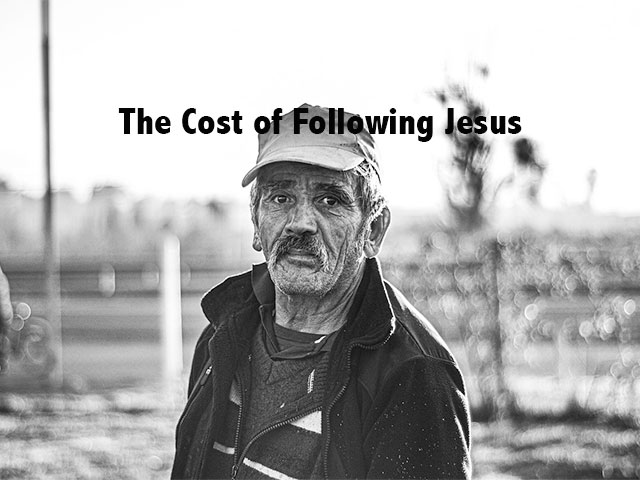The Cost of Following Jesus
by Tedd Tripp
From TABLETALK
Jesus’ response to would-be followers in Luke 9:57–62 is a primer on the cost of discipleship. The first follower liked what he saw and heard about Christ’s kingdom—love, joy, camaraderie, the sense of belonging to the kingdom. He said, “I will follow you wherever you go.” Jesus challenged the promised loyalty, “Foxes have holes, birds of the air have nests, but the Son of Man has nowhere to lay his head” (v. 58). In effect, Jesus was saying: “Not so fast. Look at Me. I embody the kingdom, yet I have no influence, no status, no political power, no army, no organization, no power base, not even a place to lay My head. This is the cost of following Me.”
Jesus was speaking truth to this would-be follower. In this world, we will not be loved. The path to glory is often through suffering, betrayal, beatings, self-denial, and the cross. Are we ready for that? At that cost, will we really follow Jesus wherever He goes?
The other two followers also stated their willingness to follow, but they gave conditions. The first wanted to bury his father. “Later, after my father is gone, then I will follow You. I want to follow You, but not yet.” The second wanted to go back home and say his final farewells. “After I have spent time with my friends, then I’ll be ready to follow You.”
These men never grasped the glory and grandeur of the kingdom. If they had comprehended the glories of the King and the eternal pleasures found at His right hand, they would not have put one last celebration with friends or waiting to put father to rest ahead of Christ. They would have known that Jesus’ glorious kingdom must come before any other considerations.
There are not two levels of following Christ, one unconditional and the other conditional. The fourth-century theologian Augustine of Hippo, before his conversion, heard Ambrose of Milan teach about God’s holiness, and Augustine felt convicted of his sin. Augustine famously prayed, “Lord make me good, make me pure, make me holy like that man, but not yet.” For us, it might sound like this: “God, I want You, but after I have established my career. I want You, but I have this relationship and I am not ready yet. I want to be kind and gentle, but right now I am raising kids who only listen if I’m angry.”
At the end of Luke 9, Jesus challenges His followers with an analogy. A farmer plowing a field cannot look back. Looking back creates conflicts, instability, and double-mindedness.
The ability to follow unconditionally is found in the grace and power of the One who existed from all eternity in heaven’s glory, who was worshiped by heavenly beings, and who delighted in the joy of the Trinity. Without hesitation, He left it all to bring many sons to glory. “Foxes have holes, birds have nests, but the Son of Man has no place to lay his head.”
Dr. Tedd Tripp is pastor emeritus at Grace Fellowship Church in Hazleton, Pa., and president of Shepherding the Heart Ministries. He is author of Shepherding a Child’s Heart.


Recent Comments